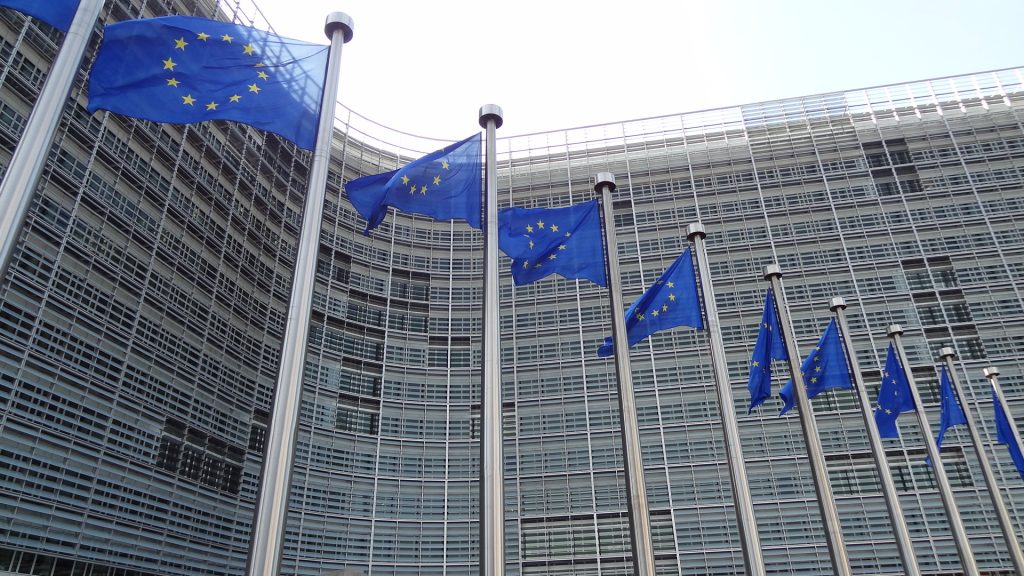
The result of the Romanian presidential election run-off, in which the centrist Nicusor Dan beat far-right populist George Simion by 53.6 per cent to 46.4 per cent, will be a cause for some relief. It offers hope that Trumpism can be resisted by centre democrats in the member states of the EU.
The possibility that Romania would turn away from the EU and towards some engagement with Trumpism, Orbanism and Putinism would have spelt extreme danger for the future of the EU. Likewise, we now look to a Polish presidential run-off election which has perhaps less extreme, but in some ways similar, potential consequences for the future of the EU.
The political process underlying the Portuguese snap parliamentary elections, which saw the right-wing populist Chega party led by André Ventura emerge as the leading opposition party along with the socialists, is a reminder of the threat that remains.
Combined with the growth of populism in Hungary and Slovakia, there are signs of movement in the tectonic plates of EU democracies. In France, right wing leader Jordan Bardella is showing opinion poll support ratings of 35 per cent two years out from the 2027 elections. The Alternative for Germany (AfD) is getting 20 per cent support in Germany and beat the SPD into third place in the popular vote last year.
Right wing politicians are doing well in Italy and Austria and have made substantial inroads in the Netherlands. Outside the EU, Nigel Farage’s Reform UK performed well in recent local elections and is gaining in popularity according to the polls. Whether he overtakes the Tories in the run up to the next UK general election or allies with them, the British first-past-the-post electoral system could easily see the Commons majority of Keir Starmer’s Labour Party toppled.
As I predicted here recently, the Tory press is now loud in its condemnation of Starmer’s deals with the US and the EU. Fishing rights is an easy subject for flag-wavers to touch upon with some effect, but in reality, its day-to-day economic importance for the UK is small. Much smaller, certainly, than likely improvements in UK-EU trading conditions. Picking up the pieces after the disaster of Brexit was never going to be easy.
A lot now depends on the outcome of the US-EU tariff issues. In a world where EU-China trade remains of great importance, the EU has to look, Janus-like, east and west at the same time. Does Donald Trump seem likely to extract any game-changing concessions from the EU that he has not obtained from the UK?
Is his so-called “Independence Day” destined to fire up the US domestic economy? Will the investment commitments made last week by the Gulf states translate into industrial and employment growth in the US any time soon?
And in view of Trump’s climate change policies, are the EU member states going to do all the heavy lifting in pursuit of global carbon reduction targets over the next five or 15 years? What chance is there of Trump’s policies being overthrown in the next five years? Could the Democrats derail Trump and Trumpism in the next midterm or presidential elections? Not on present form, it seems.
Is the US going to come to some early rapprochement with the EU or will Trump continue his hostile, opportunist strategy of weakening the EU by backing the Farages, Orbans, Bardellas, AFDs, Simions and Chegas in the hope of wholesale dismantling of the EU’s economic power and Europe’s model of enlightened liberal democracy?
The single point of maximum vulnerability for the EU is its abject failure to deal with mass migration into Europe. That is the Achilles heel of centrist Europe. Incorporating an unsustainable model of asylum rights into the EU charter of Fundamental Rights and Freedoms, based on international refugee conventions applicable to another era and another world, was a catastrophic mistake.
Member states are the appropriate places to decide on and implement such policies. Giving the EU at central level legal “competence” in this area – when it utterly lacks the collective will, political competence and means to deal with it – has brought a fundamentally destabilising element into the affairs of the continent.
Can anything useful be done at this stage? The answer is yes. Right across the member states, there is growing recognition that the status quo is unsustainable and that the much-vaunted EU migration pact is too little and too late. Member states are already acting unilaterally in response to their own electorates’ concerns on this issue.
Returning migration policy to be determined and implemented by member states is the way to go. The centre parties and centrist governments across the EU have the chance to collectively retrieve the situation before it tears the Union apart, to the pleasure of Washington and Moscow.
